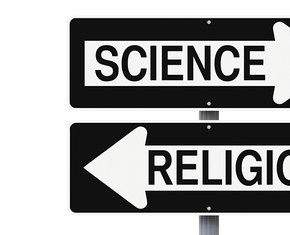The views expressed in our content reflect individual perspectives and do not represent the authoritative views of the Baha'i Faith.
There are tens of thousands of laws on the books, especially in our modern litigious societies.
Just as one example, in the United States, we have about 20,000 laws just governing the use and ownership of guns. Whether federal, state or municipal laws and ordinances, there’s almost one for every conceivable situation.
Then there are regulations based on those laws. The federal Register is the repository for federal rules, regulations, executive orders, proclamations and more. It contains millions of pages, and its rules and regulations can have the force of law where no clear law exists, since they interpret the application of the law in myriad circumstances from the highly detailed and specific to the general and vague.
Thinking about it that way, every aspect of our lives is probably regulated by some government law or rule. That goes for business, education, social work, the medical professions, and on and on.
Of course, few people know about those myriad rules, and even fewer people obey them. We have plenty of laws, but they are circumvented routinely and knowingly. If you don’t believe it, just drive on the highway.
So, in any society, we need personal, moral laws that regulate our individual conduct. Without those moral guidelines, that internal locus of individual control, society itself wouldn’t be possible. So those moral laws must be taught in every home and school from the youngest possible age until fully ingrained, and must become part of everyone’s individual conduct in all daily activities.

Isaac Asimov
What would such laws be, and what source would they come from? As one simple example, let’s look at author Isaac Asimov’s Three Laws of Robotics and see if they could apply to human beings:
1. A robot may not injure a human being or, through inaction, allow a human being to come to harm.
Here, if we say “A human may not injure a human being,” wouldn’t that make perfect, logical, social sense?
2. A robot must obey the orders given it by human beings except where such orders would conflict with the First Law.
With this law we cannot follow the first example, because we know humans can give horrific, inhuman orders. Except that, true to the first law, a human must not hurt a human—or give an order to others to hurt humans. In most legal systems, the societal version of this law would read: “A human must obey the orders given it by human beings with legitimate authority.” This is troublesome if we can’t agree on what “legitimate authority” means—but it’s even more troublesome when legitimate authority requires us to hurt others.
3. A robot must protect its own existence as long as such protection does not conflict with the First or Second Laws.
Here, to substitute the word robot with human makes sense, since protections are enshrined against harm to human beings in the First and Second Laws.
The question, therefore, is not that humans shouldn’t hurt other humans—we already know, morally, that hurting others is wrong—but instead, what is legitimate authority? Whose laws do we follow? Without question, designating a legitimate authority is the most important power humans have.
Unfortunately, the authorities we’ve elected, appointed or allowed to rule us don’t always follow these basic moral laws, or guide their nations in moral ways, either. The Baha’i teachings clearly point this out:
Everyone who truly seeks and justly reflects will admit that the teachings of the present day emanating from mere human sources and authority are the cause of difficulty and disagreement amongst mankind, the very destroyers of humanity, whereas the teachings of Baha’u’llah are the very healing of the sick world, the remedy for every need and condition. In them may be found the realization of every desire and aspiration, the cause of the happiness of the world of humanity, the stimulus and illumination of mentality, the impulse for advancement and uplift, the basis of unity for all nations, the fountain source of love amongst mankind, the center of agreement, the means of peace and harmony, the one bond which will unite the East and the West. – Abdu’l-Baha, The Promulgation of Universal Peace, p. 440.
The Baha’i teachings say that the ultimate moral authority comes from the historical figures we call the messengers or prophets of God. They speak with the authority and power of divinity itself, a power no human can equal. These holy beings contain all wisdom and all justice, and their words are the truth.
Which brings us to a big question: if true, legitimate moral authority comes from the divine messengers like Christ and Buddha and Moses and Baha’u’llah, how can we build civilizations based on their teachings of love, respect and kindness to others? How can we insert their legitimate moral and spiritual authority into our legal and governmental systems, without compromising the freedom every person has to believe as they see fit?
In the final essay in this two-part series, let’s examine that thorny question.
















Comments
Sign in or create an account
Continue with Googleor